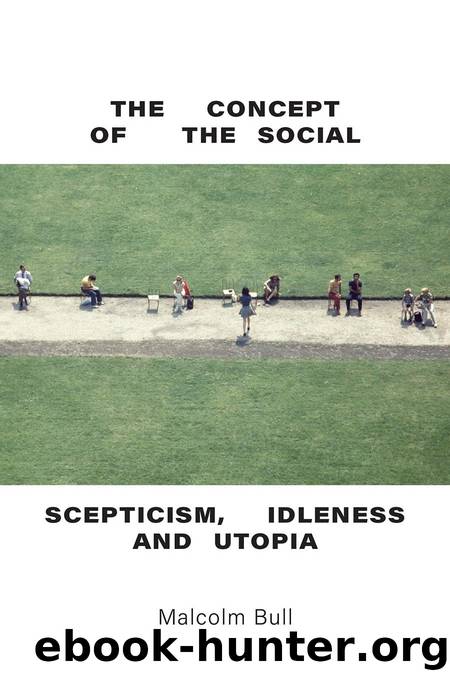The Concept of the Social Scepticism: Idleness and Utopia by Malcolm Bull

Author:Malcolm Bull [Bull, Malcolm]
Language: eng
Format: epub
Tags: Philosophy, Political, Political Science, History & Theory, Essays, Socialism, Sociology, Social Science, History
ISBN: 9781844672936
Google: ELVCEAAAQBAJ
Goodreads: 59353413
Publisher: Verso
Published: 2021-09-30T23:00:00+00:00
In practice, this involves the âconsciousness that my interest, both substantive and particular, is contained and preserved in anotherâs (i.e. in the stateâs) interest and endâ.10 This is the essence of patriotism, but it is also simultaneously the ground of the rationality of the state, for âthe state is absolutely rational inasmuch as it is the actuality of the substantial will which it possesses in the particular self-consciousness once that consciousness has been raised to consciousness of its universalityâ.11
Hegelâs theory of the state acknowledges that there is frequently a disjunction between the aggregated outcomes of our individual actions, and the objectives for which we collectively strive. He describes the collective product of civil society, brought about through âthe complex interdependence of each on allâ as a sort of general intellect which âpresents itself to each as the universal permanent capital which gives each the opportunity, by the exercise of his education and skill, to draw a share from itâ.12 However, he is clear that this is not the same as the general will, as expressed in a social contract. So, instead of wills being united by their own volition, the invisible hand creates a unity which is then consciously willed. In effect, the state is the âgeneral intellectâ become conscious of itself as the general will. By this means, the arbitrariness of the general will is steadied by the rationality of the invisible hand, and the spontaneous order of society is infused with the patriotism of the state.
Spinoza had opened up the possibility that there might be a source of political unity distinct from that of the will. Hegel, aware that this potentially creates a problem of agency in complex societies, brings them back together again. In so doing, he offers the first theory of the modern state. Hegelâs state is, as Bosanquet described it, âsociety armed with forceâ, the invisible hand clenched into an iron fist.
Download
This site does not store any files on its server. We only index and link to content provided by other sites. Please contact the content providers to delete copyright contents if any and email us, we'll remove relevant links or contents immediately.
| Anthropology | Archaeology |
| Philosophy | Politics & Government |
| Social Sciences | Sociology |
| Women's Studies |
The remains of the day by Kazuo Ishiguro(7551)
Tools of Titans by Timothy Ferriss(6945)
The Black Swan by Nassim Nicholas Taleb(6190)
Inner Engineering: A Yogi's Guide to Joy by Sadhguru(5894)
Giovanni's Room by James Baldwin(5877)
The Way of Zen by Alan W. Watts(5798)
The Six Wives Of Henry VIII (WOMEN IN HISTORY) by Fraser Antonia(4790)
The Power of Now: A Guide to Spiritual Enlightenment by Eckhart Tolle(4754)
Astrophysics for People in a Hurry by Neil DeGrasse Tyson(4620)
Asking the Right Questions: A Guide to Critical Thinking by M. Neil Browne & Stuart M. Keeley(4574)
12 Rules for Life by Jordan B. Peterson(3733)
The Ethical Slut by Janet W. Hardy(3502)
Skin in the Game by Nassim Nicholas Taleb(3459)
Housekeeping by Marilynne Robinson(3401)
The Art of Happiness by The Dalai Lama(3382)
Double Down (Diary of a Wimpy Kid Book 11) by Jeff Kinney(3272)
Skin in the Game: Hidden Asymmetries in Daily Life by Nassim Nicholas Taleb(3264)
Walking by Henry David Thoreau(3234)
12 Rules for Life: An Antidote to Chaos by Jordan B. Peterson(3200)
